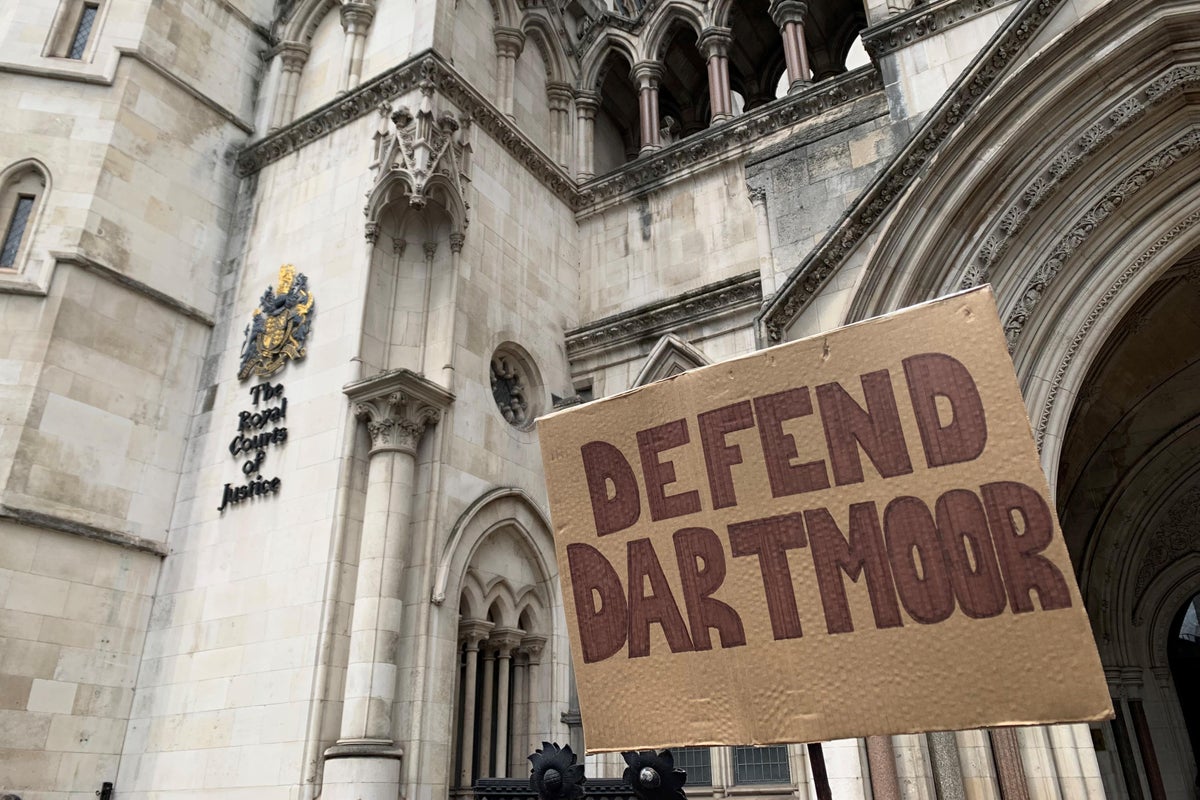
The Court of Appeal is to give its ruling in a legal battle over the right to wild camp in Dartmoor National Park.
In January, a High Court judge concluded that a nearly 40-year-old piece of legislation did not provide people the right to pitch tents overnight on Dartmoor Commons without landowners’ permission.
Farmers Alexander and Diana Darwall brought a successful legal challenge against the Dartmoor National Park Authority (DNPA), claiming some campers cause problems to livestock and the environment.
The DNPA asked appeal judges to overturn Sir Julian Flaux’s ruling at a hearing in London earlier this month, arguing he had the wrong interpretation of a 1985 law over rights of access to Dartmoor Commons.
Sir Geoffrey Vos, Lord Justice Underhill and Lord Justice Newey are due to give their ruling over the appeal on Monday afternoon.
The legal dispute has centred on the interpretation of the Dartmoor Commons Act that regulates access to moorland, with Mr Darwall, a hedge fund manager, and his wife arguing that it was not intended to provide a right to wild camp.
Sir Julian found that the meaning of the legislation was “clear and unambiguous” in that it conferred a “right to roam” which did not include “a right to wild camp without permission”.
His judgment was labelled a “huge step backward” by campaigners who claimed there was a “long-established precedent” of wild camping in the national park in Devon.
At the hearing before appeal judges, the court was told that the 1985 law states that “the public shall have a right of access to the commons on foot and on horseback for the purpose of open-air recreation”.
Timothy Straker KC, for the DNPA, said the High Court judge had “failed… to appreciate that camping is an open-air recreation”.
He said Sir Julian was also wrong to find that wild camping – where backpackers stay overnight away from traditional campsite facilities – was “a facility” to enable people to enjoy hiking.
The Open Spaces Society (OSS), a conservation charity that intervened in support of the DNPA’s appeal, claimed the ruling “went too far” and could affect bird-watching, fishing and other activities.
Richard Honey KC, for the OSS, claimed that the judge’s conclusions created “uncertainty” and did not consider the “wider public interest”.
The barrister said camping is “part-and-parcel” of long-distance walking, adding that birdwatchers, fishers, rock climbers who use tents, and walkers hit by bad weather could all be affected by the High Court ruling.
Tim Morshead KC, opposing the appeal for the Darwalls, said camping “is not on any possible view a form of ‘open-air recreation’ in any context”, adding that the OSS had “failed to identify any example of any common on which the public has ever had a right of camping”.
Mr Morshead said Mr Darwall was not “the bad guy” in the case and had been “painted as someone hostile to camping”.
He said there was a “real problem” on Mr Darwall’s land and that it was “not reasonable” for a landowner to give up control over it “without compensation”.
Mr and Mrs Darwall keep cattle on the remote Stall Moor which forms part of their more than 3,450-acre estate in the southern part of Dartmoor.
Dartmoor National Park, designated in 1951, covers a 368-square mile area that features “commons” – areas of unenclosed privately owned moorland where locals can put livestock.
The DNPA previously said backpack campers can access nearly 52,000 acres of common land across the national park and can stay overnight under a new “permissive system” as long as they follow a code of conduct.







